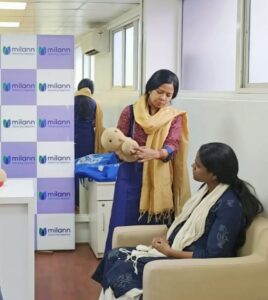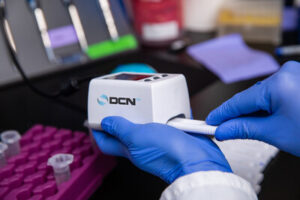Oxford Nanopore and Day Zero Diagnostics Partner to Develop a New Class of Bloodstream Infection Diagnostics

Oxford Nanopore, the company delivering a new generation of nanopore-based molecular sensing technology, and Day Zero Diagnostics (DZD), an infectious disease diagnostics company harnessing the power of whole-genome sequencing and AI to combat the rise of antibiotic-resistant infections, today announced a collaboration to develop an end-to-end solution for the diagnosis of bloodstream infections, a leading cause of sepsis.
The companies will collaborate to integrate and optimize a diagnostic system for use in clinical settings, such as hospitals, that will provide same-day identification and genomic-based antibiotic susceptibility profiling without the need for blood culture. The companies plan to pursue regulatory approvals, including with the FDA, in the future.
According to the World Health Organization (WHO), there are 11 million sepsis-related deaths every year, accounting for one in five deaths worldwide. Early and effective treatment is paramount in a severe infection because the risk of mortality can increase by the hour. However, current culture-based diagnostics can take days to return a result, including for antimicrobial susceptibility.
Long turnaround times have also severely limited the role of diagnostics in standard of care therapy, leading to both damaging overtreatment and deadly undertreatment when antibiotic resistant organisms are involved. There is a critical need for rapid diagnostics that can deliver both organism identification and antimicrobial susceptibility test results in hours to guide therapy.
“We are pleased to launch this collaboration with Oxford Nanopore that integrates nanopore sequencing innovations with Day Zero Diagnostics’ platform technologies to develop a first-of-its kind diagnostic solution for sepsis,” said Jong Lee, CEO and co-founder of Day Zero Diagnostics. “Culture free, same day, organism identification and antimicrobial susceptibility profiling directly from native samples will be a game changer for infectious disease diagnostics, directly enabling early, targeted life-saving treatment for patients.”
The diagnostic system will combine DZD’s ultra-high enrichment sample preparation technology and its AI-driven Keynome® microbial identification and antibiotic susceptibility pipeline with sequencing reads from Oxford Nanopore’s high-throughput, small-format PromethION 2 Solo. The collaboration is targeting a fully automated sample processing and sequencing workflow that fits the needs of clinical hospital labs. The unique real-time, scalable features and advances in single-nucleotide sequencing accuracy of the Oxford Nanopore platform make it ideal for the rapid and cost-effective characterization of pathogens in clinical samples.
“We are excited to partner with Day Zero Diagnostics to bring the benefits of nanopore sequencing to fight bloodstream infections,” said Gordon Sanghera, CEO of Oxford Nanopore Technologies. “Our hope is that the rapid results, high accuracy and accessibility of the Oxford Nanopore system, combined with DZD’s expertise and workflow, will make it possible for more people to access a solution that’s fast and effective in the fight against bloodstream infections.”
In addition to the diagnostic system collaboration, DZD has also signed an agreement to offer ONT based sequencing and analysis for commercial customers. DZD currently offers a family of lab services under its epiXact® brand that utilizes proprietary technologies to help healthcare and life science organizations track and manage infection outbreaks, characterize organisms of interest for research purposes, and make high impact R&D decisions. ONT will now be a sequencing platform on which these services can be provided and DZD has recently announced the launch of epiXact® ID, a rapid turnaround service that provides high resolution organism ID and deep characterization of a sample using nanopore whole-genome sequencing.









